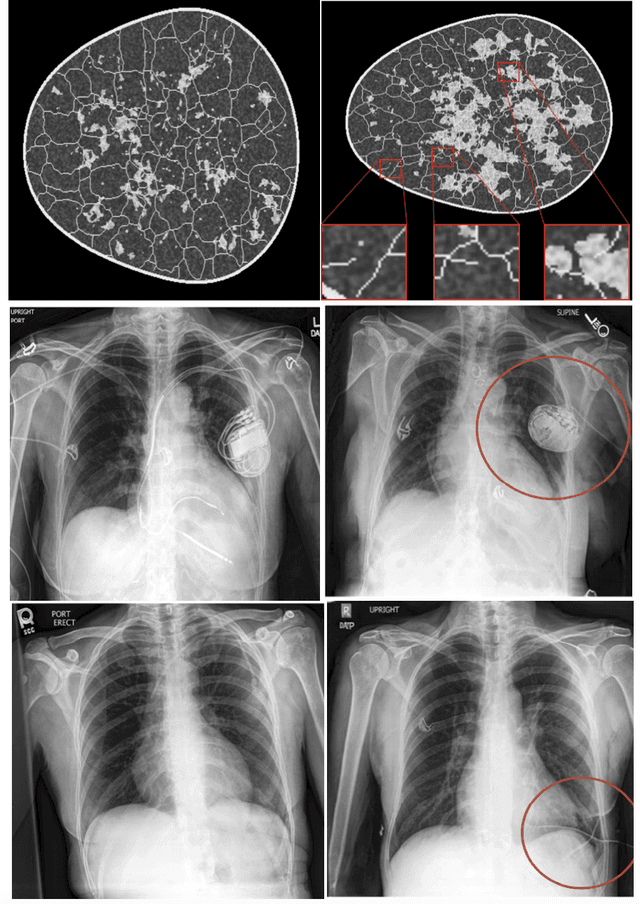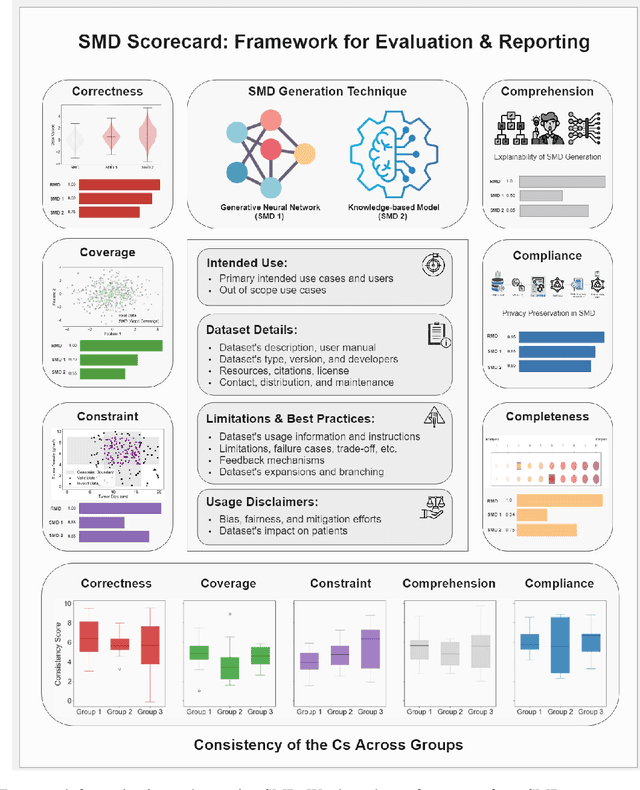Jana Delfino
S-SYNTH: Knowledge-Based, Synthetic Generation of Skin Images
Jul 31, 2024Abstract:Development of artificial intelligence (AI) techniques in medical imaging requires access to large-scale and diverse datasets for training and evaluation. In dermatology, obtaining such datasets remains challenging due to significant variations in patient populations, illumination conditions, and acquisition system characteristics. In this work, we propose S-SYNTH, the first knowledge-based, adaptable open-source skin simulation framework to rapidly generate synthetic skin, 3D models and digitally rendered images, using an anatomically inspired multi-layer, multi-component skin and growing lesion model. The skin model allows for controlled variation in skin appearance, such as skin color, presence of hair, lesion shape, and blood fraction among other parameters. We use this framework to study the effect of possible variations on the development and evaluation of AI models for skin lesion segmentation, and show that results obtained using synthetic data follow similar comparative trends as real dermatologic images, while mitigating biases and limitations from existing datasets including small dataset size, lack of diversity, and underrepresentation.
Scorecards for Synthetic Medical Data Evaluation and Reporting
Jun 17, 2024

Abstract:The growing utilization of synthetic medical data (SMD) in training and testing AI-driven tools in healthcare necessitates a systematic framework for assessing SMD quality. The current lack of a standardized methodology to evaluate SMD, particularly in terms of its applicability in various medical scenarios, is a significant hindrance to its broader acceptance and utilization in healthcare applications. Here, we outline an evaluation framework designed to meet the unique requirements of medical applications, and introduce the concept of SMD scorecards, which can serve as comprehensive reports that accompany artificially generated datasets. This can help standardize evaluation and enable SMD developers to assess and further enhance the quality of SMDs by identifying areas in need of attention and ensuring that the synthetic data more accurately approximate patient data.
 Add to Chrome
Add to Chrome Add to Firefox
Add to Firefox Add to Edge
Add to Edge